
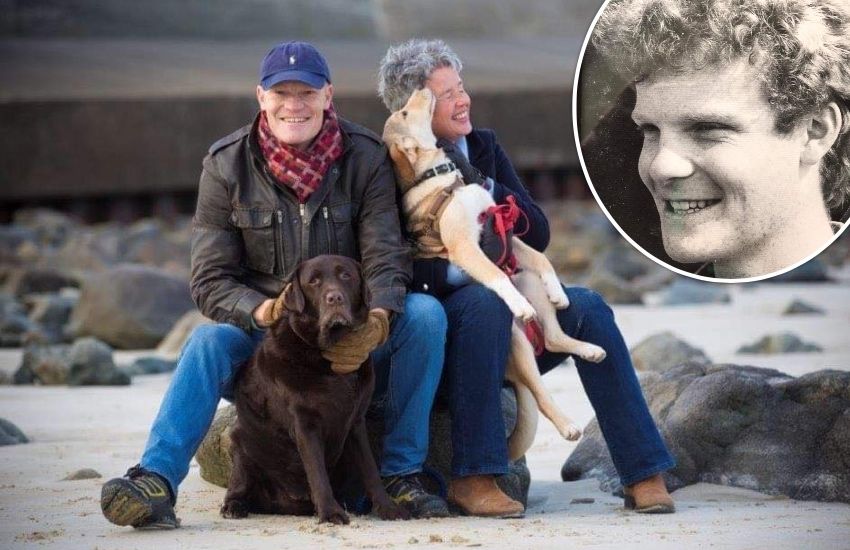

Gavin St Pier is one politician who I thought I knew a fair bit about, ahead of interviewing him; that certainly was not the case. While Gavin’s life is one which I think presents unique difficulties, and more than his fair share of trauma, he disagrees.
“The benefit of hindsight” seemed to be at the forefront of Gavin’s mind as he told me some of the defining moments of his personal and professional life which saw him move to the island “for three months in 1995” and never leave. Born at home on a farm in Surrey, Gavin explained how the separation of his family shaped his life.
“I was the youngest of three boys, with around two and a half years between each of us. As a child you have no point of reference, so it was not until later in life that I came to appreciate what an amazing environment growing up on a farm was,” he said.
“I don’t have many memories before the age of seven, when my parents’ marriage broke down and my mother left. My upbringing was quite fractured from then on."
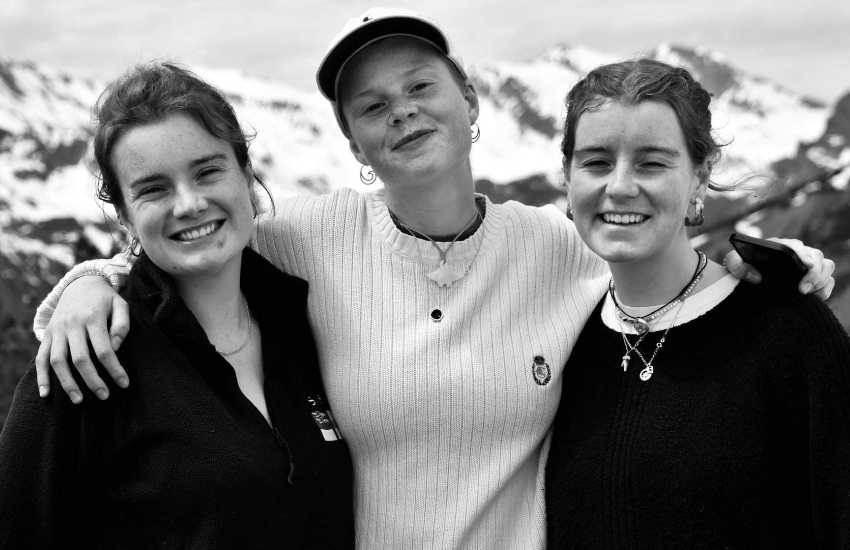
Pictured: Gavin said he feels "very blessed" to have three daughters.
Gavin continued: “For a while all three of us children stayed with my father, but one brother ended up going to live with my mother and the eldest went off to boarding school. I quickly went from living in a two-parent family with two brothers to effectively being an only child to a single father.”
Gavin explained that he remained the closest to his father but described the relationship as “dysfunctional”.
“Parenthood did not come naturally to my mother or father. I didn’t understand that as a child; it is only on reflection that I realised that was likely the case,” he said.
“My father sold the farm when I was 14 and he moved to Guernsey when I was around 17 and finishing school. I then attended the University of Southampton to read law and would visit him during the school holidays."
Gavin’s decision to read law came from a seed planted from a young age.
“I wanted to be a judge since I was around four years old thanks to a TV series called Crown Court which aired around lunchtime on weekdays in the 1970s,” he said.
“I had a few nasal operations as a child and on one occasion I was stuck at home for a period of time after an operation and I watched Crown Court every day. It was presented as reenactments of past criminal cases and I found it fascinating and was drawn into wanting to study law.
"I went to university with a very naïve view of the law being about justice. Going through university I realised that was quite idealistic and the law is much more about dispute resolution and so I was put off law as a career. Law is a good degree to have and people tend to fall into being a lawyer afterwards, certainly a lot of people I went to university with did that."
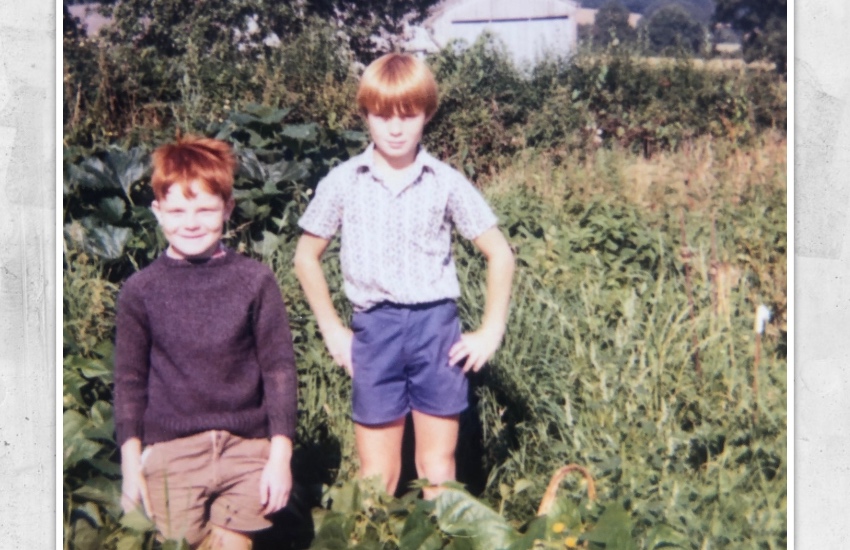
Pictured: Gavin (left) with his older bother, Justin, as children. Gavin grew up on a farm in Surrey.
Gavin said the defining part of his university experience was not his studies, but rather his three-year stint in the University Air Squadron as an RAF Volunteer Reservist.
“I learned to fly which was a hugely fun part of university life for three years. My uncle had been a squadron at Cambridge, so that is where my awareness of it came from despite not being from a service family,” he said.
“I kept it up for a few years after university, but quickly realised that, unless you are doing it a lot, it is a pastime which can become quite dangerously quite quickly. The RAF training is very disciplined for preparing you for everything that can possibly go wrong, so your flying is instinctive and you’re always thinking one step ahead.
“I found that flying was no longer instinctive and the fear of my lack of preparedness and not being one step ahead led to me not feeling as safe. If you’re going to fly, then you have to do it a lot, which is very expensive and there was no way I could afford that in my early twenties.”
With law and flying falling by the wayside, albeit temporarily for law, Gavin decided to become a chartered accountant.
“At that time, it was much easier to travel with a chartered accountancy qualification than with law. I took a role with KPMG and completed a training contract, which consisted of one year in London doing the exams and then two years back in Guernsey in the role.
“Once I qualified, I decided to specialise in tax because it was the part of the charter qualification which I enjoyed the most. I attained the qualification and then transferred to KPMG in London in a specialist tax role.”
Gavin credits his decision to transfer to London on advice he was given.
“Mike Ayres, a tax partner at BDO Reads, one of KPMG’s competitors, offered me a job at his practice. During discussions, he said that, if he were me, he would go to London and gain more experience. I have always felt that was an incredibly generous piece of professional advice to give and I have never forgotten Mike's indirect role in my career progression,” he said.
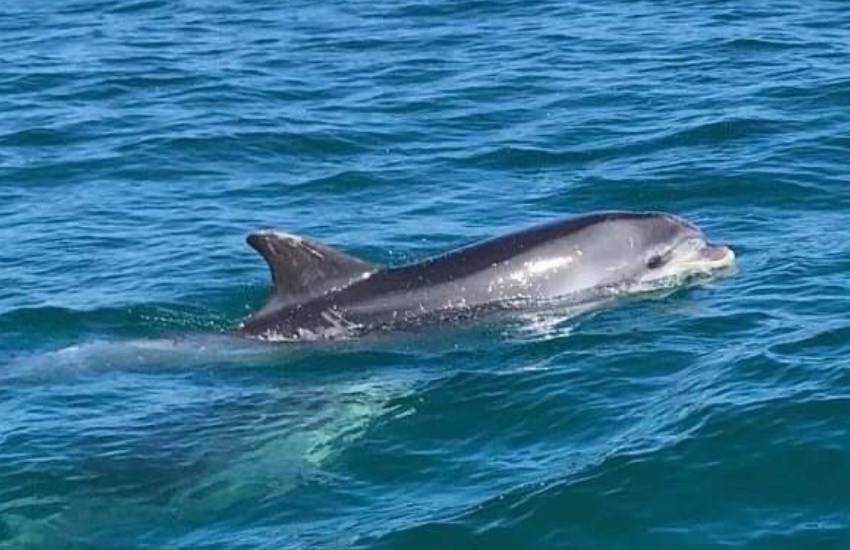
Pictured: Gavin owns a part-share in a rib and recently spotted a pod of dolphins while out on the water.
Gavin continued: “I transferred to KPMG in London in the early 90s. I quickly found myself in a position were a lot of redundancies were being made due to a recession at the time. I started to think about how I could make myself stand out among my peers and decided to qualify as a barrister while continuing to work full-time for KPMG."
It would be fair to say that Gavin has amassed a number of strings to his bow over the years. “I picked up all my professional qualifications really just by staying on the study hamster wheel and making practical choices, but those qualifications have all been in areas of study which I enjoyed,” he said.
“I have been incredibly lucky through my professional working life that I have always enjoyed what I’ve done. I have never had a problem getting up on a Monday morning and going to work and I realise I am very fortunate to be able to say that.”
Gavin was offered a two-year secondment to KPMG in Australia. Around the same time, his father had a hip replacement and was dealing with some complications from the surgery.
“I told my father that I would come to Guernsey for a couple of weeks to help him after the surgery. After one week I realised I was a terrible nurse, and he was a terrible patient,” he said.
“Out of sheer frustration, I walked into the Guernsey KPMG office and asked them if they could give me any job for a few hours a day because I needed some respite from being home with my father. I was offered a role in fiduciary services and I very quickly found that it was a really interesting blend of everything I had done up to that point.
“I was really enjoying what I was doing, much to my own surprise. I moved from what would now be called a zero-hours contract to becoming a permanent employee and abandoned the secondment to Australia.”
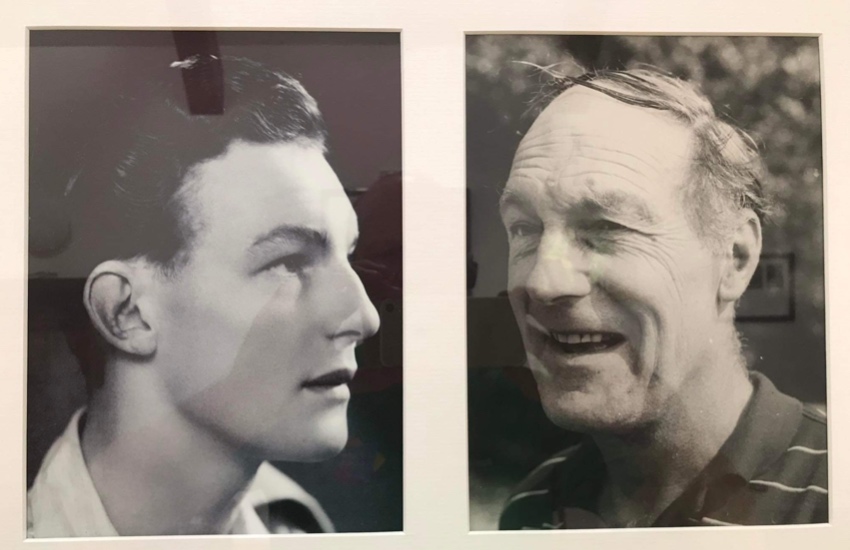
Pictured: Gavin's father pictured as a young man and then around Gavin's age (55). Gavin was the closest to his father out of his siblings.
I questioned whether Gavin regrets his decision not to take up the opportunity to work in Australia.
“I don’t have any regret over the decision, but my children will constantly refer to the ‘what if’ scenario about that choice. I look at it as a fortuitous set of circumstances. I came to Guernsey for three months in 1995 and am still here,” he said.
“I’m not the kind of person who spends a lot of time looking back. I spend more time looking forward and my career plan reflects that; I was always thinking about what I would be doing in one, two or five years.
“I have never been a ‘what if’ person and I don’t have regrets. I suppose, as you reach my age, you do start to reflect back on what you might have done differently. While we’ve all done things we feel a bit embarrassed about, I wouldn’t make any chances on the big decisions if I had my time again.”
Gavin later recognised one life experience over which he does think about the ‘what ifs’.
“With the benefit of hindsight, my older brother, Justin, always seemed to be a little bit different. At the time, he seemed to have ‘middle child syndrome’,” he said.
“Justin was later diagnosed with schizophrenia when he was 21. At 32, he took his own life. The feelings I had were probably very typical of people who lose a family member to suicide. I wondered if I could have done more and felt a great deal of guilt.
“We had invited him for Christmas that year and he declined. He took his life on Boxing Day and I wondered for a long time if we should have insisted he be with us for Christmas. Those who choose to take their own lives... it's a decision someone makes in the moment, and it cannot be easily rationalised by those left behind.
“I was left with 'what ifs'; it’s probably the one instance where I do wonder if I could have been a better brother to him during his life or if I could have done more."

Pictured: One of the last photos Gavin has of his brother, Justin, who took his own life at the age of 32.
Gavin explained that he has come to accept that his brother “has gone” but that the grieving process, where someone has taken their own life, is different to other losses.
“I have lost other family members, but grieving those deaths was entirely different. It is not a lack of acceptance, I can’t entirely articulate how it feels so different, but it does,” he said.
“I have spoken about what happened publicly and, even 25 years later, it is still a painful subject to talk about. It’s not something I live with daily, but when I do stop and think about it, it is as unsettling as it was at the time. I think that is a way that it differs to other grieving experiences which I have had.”
When his brother committed suicide, Gavin’s wife, Jane, was pregnant with their first child.
“It is difficult to answer what impact Justin’s death had on me. Until my first child was born, I hadn’t quite realised the impact his suicide would have had on my parents; it is very different to a sibling relationship,” he said.
“I have spoken with parents who have children who have taken their own lives and, as a parent myself, I find it almost incomprehensible to understand what that experience must be like.”
Gavin has three daughters, born roughly two and a half years apart, echoing the gap between his brothers.
“My eldest brother went to university in Australia at 18, so we have very little family contact since I was 13. He has returned to the UK for short periods of time, but his family are in Australia,” he said.
“Modern technology can make long-distance family relationships easier and enables connectivity which didn’t exist then. We had airmail letters and expensive international phone calls reserved for Christmas and birthdays.
“My three daughters are very close with each other. It is only when I look at the relationship, they have with each other that I realise how different my own experience was with my brothers.”
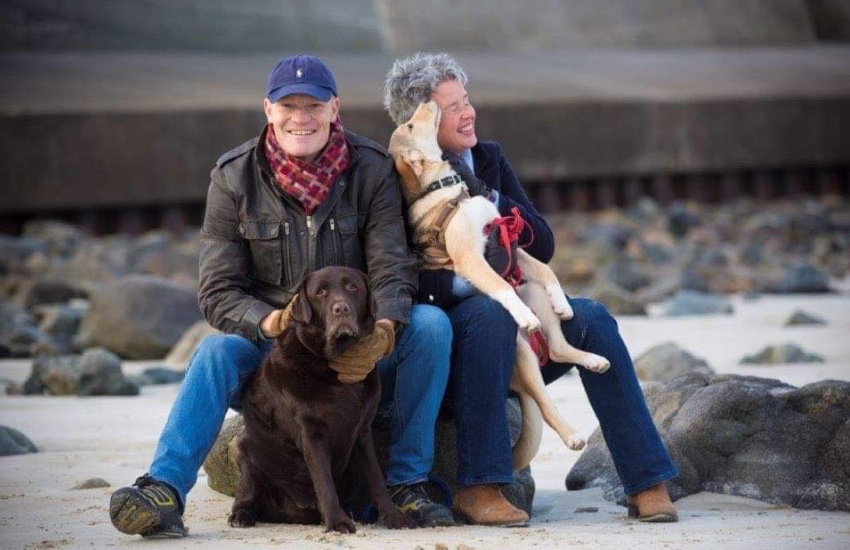
Pictured: Gavin with his wife, Jane, and their two dogs.
As Gavin embraced fatherhood, he decided to talk to his mother “to try to understand the choices she made”.
“Once I had my own children, I wanted to understand how my mother could have left her own children. We never lost contact, but it has been a cosmetic relationship. She is always good at Christmas and birthday presents, although she did forget my birthday one year which I will never forget,” he said.
“It was a frustrating conversation because there was no clear and convincing rationale for me that explained her choices. It was unsatisfactory, but it was important in enabling me to close a chapter which was a painful period of my childhood.”
I was interested to know whether Gavin felt there was anything that his mother could have said which he would have deemed to be acceptable.
“I always suspected that, after marrying young, my mother perhaps came to feel a sense of regret for what she had missed out on. If she had said that it would have been easier for me to accept,” he said.
“My mother did go on to carve a new life for herself and I could have understood it if she said she left for that reason. I also believe that my father was unsuited for marriage so that may have been a reason she left. Either of those reasons would have made sense within my frame of the world.”
Gavin’s mother is now living in a care home in Sussex. “Unfortunately, she has full blown Alzheimer’s and can’t recognise anyone or hold a conversation,” he said.
“I witnessed the same thing with my father-in-law. You almost have the loss of the individual before they have passed away, which is an odd experience.”
From the unforeseen death of his brother and the subsequent unanswered questions, to accepting the loss of his mother before she has passed, Gavin has been forced into vastly different experiences of grief. The loss of his father in 2009 after “a relatively short illness” was again a different kind of loss.
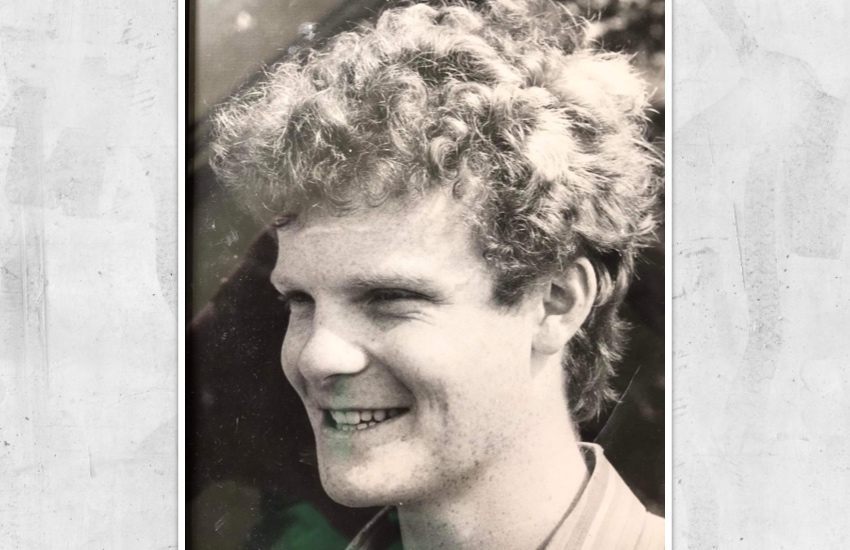
Pictured: Gavin said he was fortunate to be able to say he would not make any changes to big life choices if he had his time again.
Gavin continued: “While the outcome of the illness was inevitable, my father did not wish to experience it, but he has to. That is not unique, many families go through that experience,” he said.
“The upside of knowing death is coming, is you do have the opportunity to have all the conversations you would want to have. I felt there was nothing left unsaid with my father.
“I think a lot of times people regret not having the opportunity to say something to someone who is no longer with them. I consider myself very fortunate that I had the opportunity to have that with my father.”
I noticed that throughout the entirety of the interview, Gavin seemed to quantify his experiences by relating them to the experience of others. To me, it seems that Gavin has had to deal with a number of difficult scenarios which are not common in such a quantity to most people I know.
“I have never thought about my life in those terms. I don’t think I’ve had any experiences which are particularly unique and I don’t want to attempt to have a monopoly over a particular emotion,” he said.
“I’m not seeking to minimise my experiences, but I have come to the realisation that not very nice things happen to most people at some point in their lives.”
While “not very nice things” have happened to Gavin, he said that his family are “undoubtedly” the best thing in his life.
“Trying to pinpoint a particular highlight of my life would minimise things. It is just a moment in time. My family in its entirety is the best thing that has happened in my life, undoubtedly, and the thing of which I am most proud. I feel very blessed to have three daughters,” he said.
“Like many people, I have found it difficult to juggle work and family over the years. In the early 2000s I was off island a lot trying to grow the business. My family were young, and I justified my being away on the fact that younger children don’t have a particularly good concept of time."
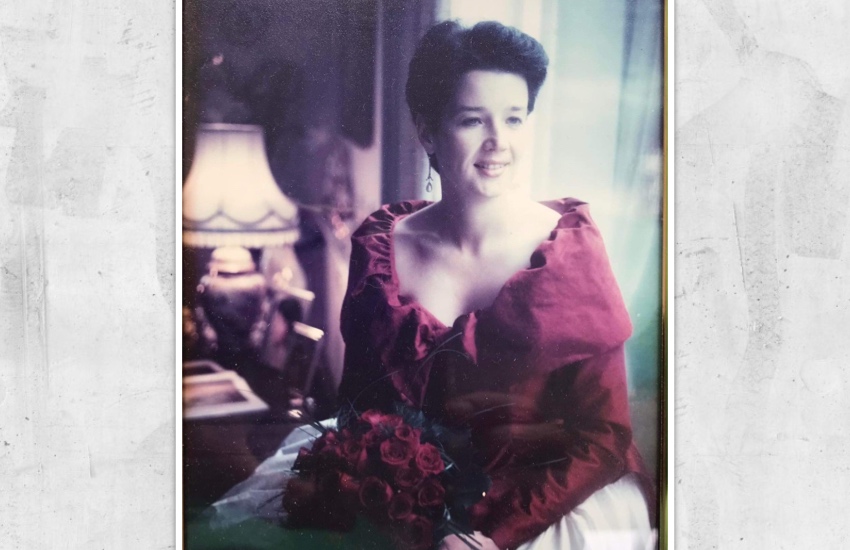
Pictured: Gavin credits his wife, Jane, for the stability she provided their family as the primary caregiver.
Gavin continued: “The stability of Jane being the primary caregiver at home absolutely made it easier for me to ‘balance’ home and work, or at least justify my absences to myself. Seeing raising children as a partnership enterprise has been critical.
“I have come to the realisation, again with the benefit of hindsight, that often when I was on-island more, I was present in the room, but my mind wasn’t. I was reasonably good at putting devices down, but if your mind is elsewhere, it’s the same thing.
“The last couple of years has made it easier for me to see that, and I am better able to devote time to being present with my family and recalibrate and rebalance. It’s been a massive personal upside. I am less stressed, more relaxed and better able to devote time to my family.”
True to his farming routes, Gavin said he would regard himself now as “a frustrated small holder”.
“We have always had a few animals and a vegetable garden. I love pottering about and playing, but that is all it is,” he said.
“It has certainly made me appreciate what an extraordinarily difficult occupation farming is. It’s 365 days a year come rain or shine and its very much a vocation and I have an appreciation for that. It's fun playing, but I wouldn’t want to earn an income from it.”
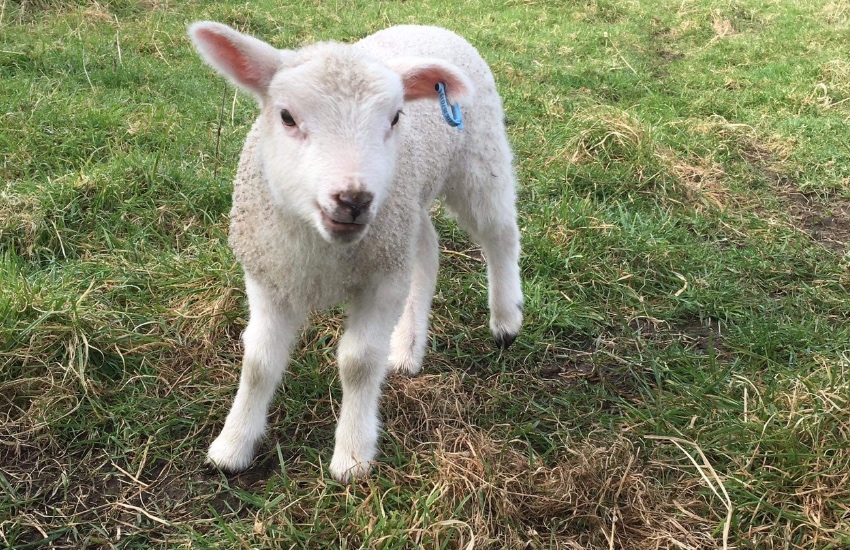
Pictured: Gavin said his family has always kept animals, including lambs and chickens.
Gavin has also found the time to take up a hobby which he had been keen to try for the last 25 years.
“My latest hobby is bee keeping. It’s something I’ve wanted to do and I was generously given a hive and colony shortly after the first lockdown,” he said.
“It’s endlessly fascinating but it is quite a stressful experience in its own way. You have a colony with 25-35,000 lives that somehow you are responsible for. Although they know what they’re doing, quite a lot can go wrong.
“It’s nice to have something you know nothing about that you have to learn about quite quickly. I desperately want it to succeed, but that is not something entirely in your grip. Rather it is about creating the right conditions to allow the colony to succeed.”
While it would be easy to draw conclusions on the appeal of bee keeping for Gavin, these interviews are strictly non-political, so any comparisons are best left unsaid.
POPPY'S POLITICIANS: Guerilla warfare, homelessness and horizons
Comments
Comments on this story express the views of the commentator only, not Bailiwick Publishing. We are unable to guarantee the accuracy of any of those comments.